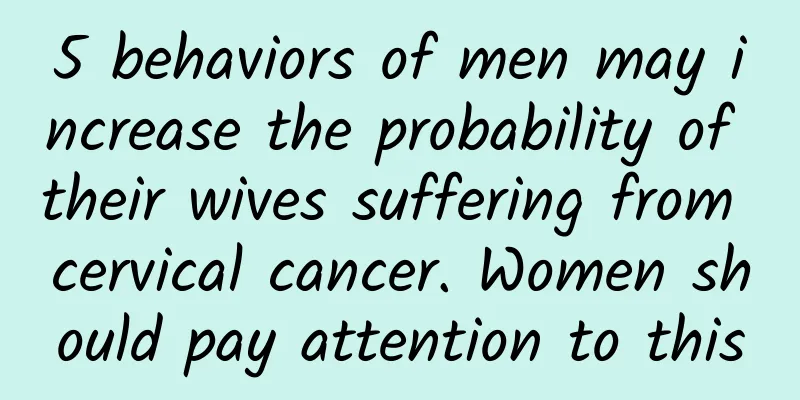What medicine should elderly people take for uterine fibroids? What are the symptoms of uterine fibroids in the elderly?

|
What medicine should elderly people take for uterine fibroids? What are the symptoms of uterine fibroids in the elderly? Uterine fibroids are a common gynecological disease that usually occurs in women of childbearing age. However, sometimes, elderly women may also suffer from uterine fibroids. So, what medicine should elderly people take for uterine fibroids? Before understanding this issue, let us first understand what are the symptoms of uterine fibroids in the elderly. Symptoms of uterine fibroids in older adults are somewhat different from those in younger women. Due to changes in blood circulation and hormone levels, older adults may not experience significant pain or symptoms such as menstrual irregularities. Instead, they may experience symptoms such as: 1. Pelvic pressure: As uterine fibroids grow, they exert pressure on surrounding organs, causing patients to feel pelvic discomfort or pressure. 2. Frequent urination: When uterine fibroids expand and compress the bladder, the elderly may often feel the urge to urinate, frequent urination, or even urinary incontinence. 3. Constipation: Uterine fibroids may also cause constipation, resulting in symptoms such as difficulty in defecation and abdominal distension. 4. The belly becomes bigger: As the fibroids grow larger, the abdomen of the elderly may become bloated, like pregnancy. 5. Back pain: The growth of uterine fibroids will put pressure on the waist, causing back pain in the elderly. The above symptoms may be signs that the elderly have uterine fibroids. It is recommended to seek medical attention in time for diagnosis. So, for the elderly with uterine fibroids, what medicine should they take? We need to be clear that drug treatment cannot completely cure fibroids, but can only relieve symptoms. In terms of drug treatment, there are currently two main types of drugs commonly used to treat uterine fibroids: hormonal drugs and anti-progesterone drugs. Hormonal drugs include estrogen and progesterone. These drugs can regulate hormone levels and thus relieve the symptoms of uterine fibroids. However, the effectiveness of hormonal drugs may be limited in the elderly because their hormone levels have changed. Anti-progesterone drugs are another commonly used drug. They work by inhibiting the thickening of the endometrium to reduce the growth of uterine fibroids. However, these drugs may cause some adverse reactions after long-term use, so they need to be used under the guidance of a doctor. When elderly people have uterine fibroids, drug treatment should be carried out under the guidance of a doctor. The doctor will select appropriate drug treatment according to the patient's specific situation and monitor and control adverse reactions. During the treatment process, the elderly should pay attention to rest, maintain good living habits, and increase their exercise appropriately. In terms of diet, they should pay attention to balanced nutrition, eat more fiber-rich foods, and avoid excessive consumption of greasy and irritating foods. When elderly people have uterine fibroids, early detection and timely treatment are very important. Drug therapy is a common treatment method, but it needs to be used under the guidance of a doctor. During treatment, the elderly should maintain good living habits and follow the doctor's advice. If the symptoms are severe or discomfort occurs, please seek medical attention in time. |
Recommend
How to use medicine correctly for ovarian cysts
How to use medicine correctly for ovarian cysts? ...
Experts tell you the causes of irregular menstruation
Many people think that irregular menstruation is ...
What should women pay attention to after having an abortion?
After a woman has an abortion, her body needs som...
Which hospital treats malnutrition of the vulva?
Vulvar malnutrition includes atrophic malnutritio...
What are the effects of 2mm uterine fibroids? How to treat 2mm uterine fibroids best?
What are the effects of 2 mm uterine fibroids: th...
What is the best diet for irregular menstruation? The following is a detailed introduction
Irregular menstruation requires attention to diet...
Five reasons why vaginitis keeps bothering you?
The private parts are extremely itchy and the vag...
Just 15 minutes a day! 5 ways to get rid of belly fat
Is it so difficult to be thin? The biggest enemy ...
There are several things to pay attention to for menopausal women
In our daily life, many diseases are normal pheno...
What causes ovulation bleeding?
The causes of ovulation bleeding can be divided i...
Eat corn to control weight ~ Guess which color has the lowest calories?
Many people are accustomed to going to convenienc...
What are the main causes of pelvic inflammatory disease?
Gynecological diseases such as pelvic inflammator...
Do you know what is causing vulvar leukoplakia?
Experts analyze the symptoms of vulvar leukoplaki...
How do you know if you have an ovarian cyst?
The ovaries are the main organs of female physiol...
Does abnormal leucorrhea and irregular menstruation affect pregnancy?
Does abnormal leucorrhea and irregular menstruati...









